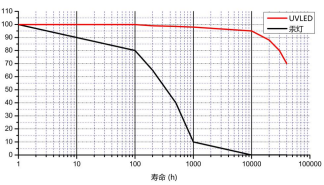Top Manufacturers of Tensile Testers for Accurate Material Performance Evaluation
Understanding the Role of Tensile Testers Manufacturers in Material Testing
Tensile testers, also known as universal testing machines, are essential devices used to measure the tensile strength, elongation, and other material properties of various substances, including metals, plastics, textiles, and composites. The importance of these machines spans across many industries, including aerospace, automotive, construction, and manufacturing. As a result, the role of tensile testers manufacturers is critical in ensuring that these machines are reliable, accurate, and capable of meeting diverse testing needs.
The Basics of Tensile Testing
Tensile testing is a key mechanical test that determines how a material behaves under tension. During a tensile test, a sample is subjected to a controlled tension until it fractures. The test provides data on various properties, such as yield strength, tensile strength, and ductility, which are crucial for understanding material performance. Tensile testers are engineered to apply force precisely and to measure elongation accurately, thus offering valuable insights into the strength and durability of materials.
Key Features of Quality Tensile Testers
When evaluating tensile testers, several essential features must be considered
1. Load Capacity Different materials require different testing capacities. High-quality tensile testers can accommodate a wide range of load requirements, making them versatile for various applications.
2. Measurement Accuracy Precision in measuring force and elongation is critical. Advanced tensile testers incorporate high-resolution sensors and data acquisition systems that provide accurate readings.
3. Testing Speed The ability to adjust the speed of testing is essential for simulating real-world conditions. Quality testers allow users to set various testing speeds, accommodating different materials and testing standards.
4. Software Integration Modern tensile testers come equipped with sophisticated software that allows for comprehensive data analysis, reporting, and storage. This capability facilitates better interpretation of results and aids in adhering to industry standards.
tensile testers manufacturers

5. Compliance with Standards Reliable manufacturers ensure that their tensile testers meet international testing standards (e.g., ASTM, ISO), which is crucial for industries requiring certification for quality assurance.
The Role of Manufacturers
Tensile testers manufacturers are responsible for designing and producing machines that meet the varying demands of their customers. They invest in research and development to innovate and improve their products continuously. Quality manufacturers not only focus on the physical machinery but also provide excellent customer service, including installation, maintenance, and calibration services.
Proficient manufacturers also offer customized solutions for specialized testing requirements. For example, some industries may need testers designed to evaluate the properties of high-temperature materials, while others may require machines adept at testing very small samples. Manufacturers that can adapt their design and production capabilities to meet these unique demands gain a competitive edge in the market.
Market Trends and Future Directions
The market for tensile testers is evolving, driven by advancements in technology and materials science. Manufacturers are increasingly incorporating automation and AI into their systems, which enhances both efficiency and accuracy in testing. As industries grow more focused on sustainability, there is also a rising demand for eco-friendly materials, prompting manufacturers to develop testing equipment capable of handling biodegradable and composite materials.
Furthermore, the integration of Internet of Things (IoT) technology enables remote monitoring and data analysis, making it easier for businesses to manage their testing processes efficiently.
Conclusion
Tensile tester manufacturers play an indispensable role in the realm of material testing. By providing high-quality, reliable machines, they help industries ensure the safety, durability, and performance of materials used in products worldwide. As technology continues to advance, the collaboration between manufacturers, researchers, and industries will further enhance the capabilities of tensile testing, paving the way for innovation and quality assurance in material development.
-
The Role of Tensile Force Testers in Quality Control and Material Science
NewsAug.01,2025
-
Maintenance and Safety Tips for Aging Ovens
NewsAug.01,2025
-
Density Balance in Forensic Science
NewsAug.01,2025
-
Advanced Optical Measurement Technologies
NewsAug.01,2025
-
A Buyer’s Guide to Tensile Test Machines
NewsAug.01,2025
-
Why the Conductor Resistance Constant Temperature Measurement Machine Redefines Precision
NewsJun.20,2025
 Copyright © 2025 Hebei Fangyuan Instrument & Equipment Co.,Ltd. All Rights Reserved. Sitemap | Privacy Policy
Copyright © 2025 Hebei Fangyuan Instrument & Equipment Co.,Ltd. All Rights Reserved. Sitemap | Privacy Policy
